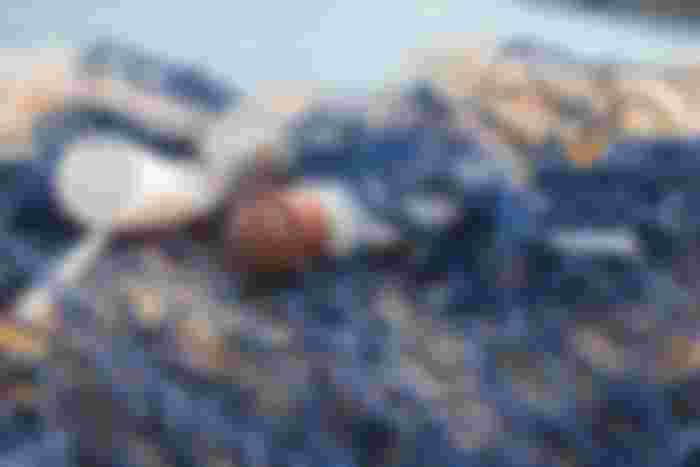The ongoing COVID-19 pandemic is believed to be on its home stretch. This provides an opportunity to evaluate the impacts of this raging pandemic on our planet based on what has happened, impacts on land and ocean conservation, and what measures need to be taken. The question that lies ahead of us is what is next.
The foremost understanding towards answering the aforementioned question is rectifying some prevalent narratives. For instance, towards the beginning of the pandemic, there were several stories about the quiet solitude in cities and ocean bodies. Many believed that the animals started reclaiming their habitat and nature had started healing. Such stories formed a rosy picture around the impacts of the pandemic on Earth.
On the other hand, the real picture is completely different. It has been seen that millions of plastic bags have still been inappropriately discarded. In addition, this pandemic also led to people discarding their masks that have completely tossed ocean conservation measures. The waterways all over the world have also seen several other adverse changes.
Rachel G. Kroner, an environmental governance student of Conservation International, stated that ocean conservation has been facing a huge challenge owing to this pandemic. As a result, since the last 2 decades, a considerable segment of the global conservation of biodiversity is being supported by ecotourism. Nonetheless, this funding source is gradually drying up because of the preventions upon international travel since last year.
Although numerous complex events worldwide have been adversely affected due to the pandemic, ocean conservation is certainly the foremost with long-term impacts.
Lasting Consequences On Ocean Conservation

All human beings have had to shift to a digital workplace forced by the pandemic. Additionally, there have been countless meetings on international wildlife and ocean conservation. Most of these meetings and events have been of utmost importance but have been stalled or postponed. Some of them have been prepared for many years by activists and scientists. The ones that have been conducted online have been much less effective.
For example, the Tuna Commission on Inter-American Tropic (IATTC) failed to reach any conclusion during their December 2020 gathering. The agreement closed without any proper quotas for 2021. If this happened in a normal situation, it would have resulted in a multi-billion dollar investment in proper channels. The tuna management, which is a significant part of ocean conservation, during last winter went through ‘The Purge’.
Grantly Galland, an expert on tuna management at Pew Environment, informed that these meetings are typically very difficult and frustrating. The physical meetings and negotiations take place across nights that often fail to reach satisfactory results. Although the pandemic did not bring any real problems in the tuna management, experts consider that virtual meetings that ended ‘schmoozing’ led to an irreversible breakdown in the negotiations.
Fortunately, after getting enormous pullback from environmental activists and the public, IATTC gathered together to lay down some rules for 2021. However, these are not the ideal solutions considering the complicated issues and anarchy present in ocean conservation.
Aid For Industry Relaxes Ecological Laws
During the time of every economic crisis, the industries inevitably request temporary rollback of the environmental protection regulations which poses an economic burden to them. Coastal and marine protected areas have also faced the brunt of this. Although such demands have been faced with opposition from the fishing industry and science-based ocean conservation groups.
Meanwhile, a council of fisheries management had requested the former Trump administration to allow them to fish in the protected areas. Seeing the petitions and reason for the demand, the administration rolled back the fishing protection near the Atlantic to meet their request.
Kroner has emphasized the growing threats from the pandemic upon ocean conservation. According to her, the key challenges are budget cuts, disruption in supply chains of seafood, a decline in tourism-based revenue, and setbacks in implementing conservation activities. She further added the almost collapse of the tourism-related hospitality industry across Australia, Indonesia, Kenya, and the Galapagos. Many of the employees working in the fishing industry have been convinced to join the tourism industry instead and resulted in their unemployment.
Ups & Downs In Conservation Management

Ulu Ching, program manager at Hawaii Conservation International, informed that despite shutdowns and restrictions around coastal regions, harvest activities have continued. He also mentioned that the human-nature connection since generations has enabled ocean conservation activities to keep up the momentum. Ching also added that well-established networks between marine agencies and the government ensured minimal effect of the pandemic.
Kroner has pointed out that despite the loss of momentum to build protected areas, the work has been successfully achieved in some parts of the world. However, the work has comparatively been negligible. Moreover, the monitoring has stopped while the threats continue and become larger.
One of the most important tools in the toolbox of conservationists is independent people on-board fishing vessels. These people monitor and document the surroundings but due to the coronavirus safety regulations, such observer coverage has significantly reduced or stalled. Simon Gulak, Sea Leucas fishery consultant, mentioned that although fishing continues, the observer coverage rules have been negatively altered. He explained that fishery observers offer accurate information about the catch and act as auditors.
Impact On Marine-Associated Activities
Gulak specified that electronic monitoring in fisheries including cameras and GPS trackers record all the bycatch and catch. This leads to the automatic recording of relevant data. Consequently, Galland stressed the significance of increasing electronic monitoring that might have a positive long-term effect on ocean conservation.
Experts are still trying to process the impact of the pandemic on ocean conservation and think it is still too early to assess. Continued virtual meetings, planning on funding schemes, and monitoring endangered species and fisheries should persist.

